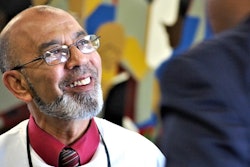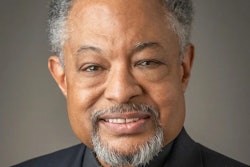The Unapologetically Free virtual conference featured talks about the Black college experience, the process of grieving loss, and knowing when to seek mental health assistance. Dr. Meag-gan O'Reilly
Dr. Meag-gan O'Reilly
The two-day event – hosted by United Negro College Fund (UNCF), the Steve Fund, and Thurgood Marshall College Fund (TMCF) Apr. 11-12 – focused on matters of student mental health on Black college campuses.
"Compared to 61% of white students, 75% of Black college students report that they tend to keep their feelings about how hard college is to themselves,” said Victoria Smith, strategy analyst for the UNCF Institute for Capacity Building. “Additionally, Black students were more likely to experience anxiety and depression than other groups but were less likely to actually seek mental health services."
Dr. Meag-gan O'Reilly, psychologist, co-founder of Inherent Value Psychology Inc., and lecturer at Stanford University’s School of Medicine, urged college students to think about their “un-Resume Self,” the defining characteristics and details of oneself that would not appear on a resume. For example, some of O’Reilly’s were that she was a first-generation Jamaican American and the youngest sibling in her family.
College is conventionally thought of as a time for leaving the nest, self-exploration, and individual growth. But once the concepts of college and mental health are “decolonized” of its white, cisgender roots, people can recognize that the Black college experience can be about more, O’Reilly said.
“When we decolonize this season of your life, we also get to bring in some more nuance,” O’Reilly said. “[College] can also be about deepening your affiliations. Many of you in the room have chosen to go to HBCUs because maybe there's some legacy in your family, or you want to deepen your identity as a person in the African diaspora."
O’Reilly stressed that students should not – nor let others – minimize and criticize their unique college experiences for not being conventional ones. If it’s good for your well-being, do more of it, she added.




















